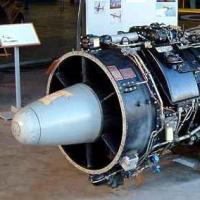Computer training. Using Computers in Education - Web Programmer's Blog Making the World Closer
COMPUTER TRAINING
COMPUTER TRAINING, the use of computers in the process of teaching general education subjects. This area is currently being actively developed as new technologies emerge. Compact discs became important, which made it possible to accompany teaching with audio and video materials, as well as the Internet, thanks to which pupils and students gained access to information from all over the world.
Scientific and technical encyclopedic dictionary.
See what "COMPUTER EDUCATION" is in other dictionaries:
The phrase computer learning can mean different meanings: teaching people using computer tools programmed learning a learning technique according to some algorithm (not necessarily using a computer) ... ... Wikipedia
computer training - component computer linguodi training using EV technical means ... Explanatory Translation Dictionary
COMPUTER TRAINING- Basically, the use of computers to facilitate the learning process. In fact, computer-assisted learning systems are only one (though the most technologically advanced) of the pedagogical developments that have been made in recent... ... Explanatory Dictionary of Psychology
computer training- the use of computers to facilitate learning processes ... Encyclopedic Dictionary of Psychology and Pedagogy
Computer vision is a theory and technology for creating machines that can detect, track and classify objects. As a scientific discipline, computer vision refers to the theory and technology of creating artificial systems, ... ... Wikipedia
Computer Go direction of artificial intelligence to create computer programs that play Go. Contents ... Wikipedia
Fraud in the broadest sense is deceit or breach of trust with the aim of taking possession of another's property or the right to another's property (property or money). Fraud is usually a crime. Criminal ... ... Wikipedia
PROBLEM LEARNING- training, with a rum teacher, systematically creating problem situations and organizing the activities of students according to the solution of the account. problems, provides an optimal combination of their own. search activity with the assimilation of ready-made conclusions of science. P … Russian Pedagogical Encyclopedia
Problem learning- training, in which the teacher, systematically creating problem situations and organizing the activities of students to solve educational problems, ensures the optimal combination of their independent search activities with the assimilation of ready-made ... ... Pedagogical terminological dictionary
This article or section needs revision. Please improve the article in accordance with the rules for writing articles ... Wikipedia
Books
- , Goodfellow J. Deep learning is a type of machine learning that empowers computers to learn from experience and understand the world in terms of a hierarchy of concepts. As the computer acquires knowledge from...
- Deep Learning (color illustrations), Goodfellow J. Deep learning is a type of machine learning that empowers computers to learn from experience and understand the world in terms of a hierarchy of concepts. As the computer acquires knowledge from...
Computers have largely become an integral part of our lives. Particularly in the field of education, their use is quite varied.
Over the years, computers have changed how the world works. They have proven their effectiveness not only for the corporate sector, but also in other sectors such as medicine, architecture, communications, research, sports and education. It is these machines that were once used only in research labs and government offices that have now become commonplace in schools around the world. Today, computers have touched the lives of many students living in a remote part of our planet.
There is no denying the fact that computers completely control the life of the average student in every corner of the world, whether in the form of handheld devices or printed textbooks (thanks to the use of computers in printing).
Computers have changed the way we work, in every profession. Therefore, it is quite natural that the role of computers in education is given great importance especially in recent years. Computers play an important role in every field. They help industrial processes, find applications in medicine; are the reason why software industries develop and thrive, and they play an important role in education. Given the use of computer technology in almost all areas of life, it is important for every person to have at least a basic knowledge of using computers. Let's look at the role computer technology plays in education.
Computers in education
Computer technology has a profound impact on the education sector. Thanks to computers, education has become easier and much more interesting than before. They provide fast data processing with very little chance of processing errors. Networked computers help fast communication and web access. Storing documents on computers in electronic form helps save paper.
Of all the advantages of computers in education, primarily include:
- Data storage
- Fast data processing
- Audiovisual in teaching
- Better presentation information
- Internet access
- Fast communication between students, teachers and parents
Computer and interactive learning play a key role in education. Computer technologies are integrated into the modern education system.
e-learning
Let's start by stating the obvious. Without computers, learning will be limited within the walls of institutions. The best way to make education accessible to all is with computers. Working professionals, retirees, and many others can benefit from online education. E-learning is affordable and affordable, whether you're a professional student to hone your management skills or a college student looking to learn a foreign language.
Computers gave impetus to distance education
Online education has revolutionized the education industry. Computer technology made a dream distance learning reality. Education is no longer limited to classrooms and classrooms. Physically distant places have been able to get closer due to the availability of the Internet. So, even if students and teachers are in different rooms, they can interact very well with each other. There are many online learning courses where students are not required to attend classes or be physically present at the lecture. They can learn about them from the comfort of their homes and adjust the time according to their convenience.

Making learning more interesting
We all know how to learn about the depth of the Mariana Trench in geography class, but it can be a bit uninteresting for young children. However, by introducing the audiovisual teaching method, computers have made education more interesting. Like communication systems, education is changing for the better - computers have made our children more curious.
Computers improve the presentation of information
Computers contribute to the effective presentation of information. Presentation software such as PowerPoint and animation software such as Flash can be of great help to the teacher during lectures. Computers facilitate the audiovisual presentation of information, which makes the learning process interactive and interesting. Computer learning adds an entertaining element to education. Today, teachers practically do not use chalk and blackboard. They bring presentations on a flash drive, plug it into the classroom computer, and the learning begins. There is Color, there is sound, there is movement - the same old information comes out differently and learning becomes more fun. Otherwise, not very interesting lessons become interesting thanks to audiovisual effects. With visual aids, difficult subjects can be explained in more effective ways. Everything becomes easier thanks to the use of computers in education.
![]()
Bring the world closer

Expand creative possibilities
Computers help students bring their assignments and projects to life. The use of computers is well established in almost every field, from the botanical sciences to the fine arts.

Computer source of knowledge
The Internet is now what libraries once were. In addition, it is easier to access, more convenient and a fairly reliable source of information. Computers have now turned from bulky devices into portable ones, students receive information literally at their fingertips.
It is easier for students to turn to the Internet than to look for information in thick books. The learning process went beyond the prescribed textbooks. The Internet is a much larger and easier way to access a wealth of information. When it comes to storing extracted information, it's easier to store it on computers than it is to keep handwritten notes.
There is information about literally everything on the Internet, and computer technology makes it easy to access. The Internet can play an important role in education. Since this is a huge information base that can be used to extract information on a variety of topics. Both teachers and students can benefit from it. Teachers can refer to it for more information and links to topics to be taught. Students can refer to web sources for more information on topics that interest them. The Internet helps teachers to establish test papers, homework and contact the parents of students.
Reducing bureaucracy
The computers have more or less eliminated the documents in the education administration section. Through websites, we can do away with printed brochures, application forms, permits and other administrative documents through electronic procedures that are cost effective and environmentally friendly. Tests have also become online, making assessment procedures easy for teachers and educators.
Computers enable efficient data storage
Computer hard drives and storage devices are a great way to store data. Computers use the storage of data in electronic format, thereby saving paper. This gives them the ability to store huge amounts of data. In addition, these devices are compact. They take up less space but store large amounts of data. Both teachers and students benefit from the use of computer technology. Presentations, notes, documents can be stored and transferred easily through computer storage devices. Similarly, students can submit homework and assignments electronically. The process becomes paperless, thereby saving paper. Plus, in electronic format, data storage becomes more reliable. Electronically erasable memories can be reused. They offer efficient solutions for data storage and reliable retrieval.
It was about the role of computers in education. But we know that computers have not only affected the education sector. They are of great use in every field. Today, life without computers is unthinkable. This highlights the importance of computer education. With knowledge of computers, you can move your career in the right direction. Computers are part of almost every industry today. They are used on the web, to access information and store data, and to process and present information. It would not be an exaggeration to say that computer learning is as fundamental as the study of the Russian language and mathematics.
Absolutely all spheres of life modern man become connected in one way or another with computer technology. Not only the business world cannot do without gadgets, but even ordinary people conduct their communication through certain applications in smartphones and laptops. Therefore, the demand for high-class computer specialists in the labor market is so great - the so-called. "IT people".
A good specialist knows how to remove a virus from Android, and how to establish the security of an internal banking program. The front of work is very wide, deep and diverse knowledge is required. Training in IT specialties is mandatory, because even self-taught geniuses must know at least the basics of computer technology.
- The first thing that comes to mind is applying to a college or university for one of the offered IT specialties. And this approach is quite logical, because, leaving the walls of the educational institution, you will have a document on specialized education in your hands.
- But some are limited to courses or enter private academies. It all depends on what level you want to have a computer specialization.
- Even for schoolchildren, there are special programs and classes for teaching IT technologies. After such preparation, it is easier for students to enter universities.
Very often, students come to educational institutions who need to update and optimize their knowledge to the current level of development of IT technologies. The lion's share of applicants want to acquire a computer profession that will allow them to get a highly paid job in this area in the future.
Specialized courses are mainly attended by those who want to gain basic knowledge and skills in a narrow-profile IT specialty. They can last from several weeks, usually up to a year.
For children and adolescents, in addition to school classes in computer science, additional electives may also be provided. Or parents can send their future computer genius to a specialized academy. Such training involves expensive expenses, but the demanded specialty received by the child will justify the money invested in computer education in the future.
Moscow University named after S.Yu. Witte (MIEMP)
(Higher education)- one of the youngest and most promising specialties of modern higher education, a new area of professional activity, emerging at the intersection of production and information and communication technologies (ICT).
(Higher education) This is one of the youngest and most promising specialties of modern higher education, a new area of professional activity that is being formed at the intersection of economics, management and information and communication technologies (ICT).
(Higher education) Business informatics is one of the youngest and most promising specialties of modern higher education, a new area of professional activity that is being formed at the intersection of economics, management and information and communication technologies (ICT).
TUSUR. Tomsk State University of Control Systems and Radioelectronics
Business Informatics The field of professional activity of bachelors in the direction 080500 "Business Informatics" includes: * designing the architecture of an enterprise; * strategic planning for the development of IS and ICT enterprise management; * organization of life cycle processes of IS and ICT enterprise management; * analytical support for decision-making processes for enterprise management.
Informatics and computer engineering with a training profile "" (Higher education, Second higher education) The field of professional activity of bachelors includes: * Computers, systems and networks; * automated information processing and management systems; * and information support of products; * software for automated systems.
Software engineering (Higher education, Second higher education) The field of professional activity of graduates in the direction of training "231000 Software Engineering" is the industrial production of software for information and computing systems for various purposes.
Applied Informatics in Economics (Higher education, Second higher education) The field of professional activity of bachelors in the direction 230700 "Applied Informatics" includes: * system analysis of the applied area, formalization of the solution applied tasks and IS processes; * development of requirements for the creation and development of IS and its components; * feasibility study of design solutions; * development of projects for automation and informatization of applied processes and the creation of IS in applied areas; * implementation of design solutions using modern information and communication technologies and programming technologies; * implementation of automation projects for solving applied problems and creating IS; * project management of informatization of enterprises and organizations; * training and consulting on automating the solution of applied problems; * maintenance and operation of IP; * ensuring the quality of automation and informatization of the solution of applied problems and the creation of IS.
Control in technical systems (Higher education, Second higher education) The field of professional activity of bachelors in the direction of "220400 Management in technical systems" includes: * design, research, production and operation of systems and controls in the industrial and defense industries, in the economy, in transport, in agriculture, medicine; * creation of modern software and hardware for research and design, control, technical diagnostics and industrial testing of automatic and automated control systems.
Informatics and computer engineering with a training profile "Computer-aided design systems" (Higher education, Second higher education)
(Higher education)
Software for computer facilities and automated systems (Higher education)
(Higher education)
Computer-Aided Design Systems (Higher education)
(Higher education)
Software development technologies (Higher education)
Today, in the context of global informatization, the need to create new software is constantly increasing. An information systems development engineer is one of the most sought-after and highly paid professions not only in Russia, but throughout the world.
Information control complexes of object security systems (Higher education)
Modern society makes high demands on the security of facilities. This branch of science and technology is one of the most dynamically developing both in Russia and abroad, which leads to a high level of demand for specialists in this field.
Integrated automated information systems (Higher education)
A wide range of skills and abilities distinguishes specialists of this profile from an ordinary programmer or engineer, which significantly expands their subsequent work activity and serves as a guarantee of financial well-being.
Computer-Aided Design Systems (Higher education)
A CAD engineer is a unique specialist. This is due to the fact that graduates acquire skills that allow them to solve complex problems of designing images of new equipment and technologies, to perform work as an analyst and a programmer, to create knowledge bases and data banks.
Software for computer facilities and automated systems (Higher education)
A graduate of this direction is prepared to solve a wide range of problems of modern commercial companies in the field of business informatization.
(Higher education)
In Applied Informatics, you will study programming languages, creating web interfaces, developing operating systems and software, developing programs, developing and operating databases. You will learn how to develop and implement computer programs suitable for the practical solution of problems in a particular area.
Applied Informatics in Economics (Higher education)
Applied Informatics in Economics (Higher education)
This specialty includes the two most popular areas in education today - economic and information. By enrolling in the specialty "Applied Informatics in Economics" you will study the development of economic information systems at all stages of their life cycle.
Electronic business (Higher education)
The specialty "Electronic Business" will teach its students to research and analyze the information technology market, design and implement information systems and information and communication technologies, develop projects to improve business processes and IT infrastructure of an enterprise, manage IT services and content of information resources of an enterprise, conduct an audit business processes of the IT infrastructure of the enterprise and much more.
National Research University "MIET"
(Higher education)
The specialty "Software for Computer Engineering and Automated Systems" prepares specialists who are well versed in programming and software development. Also, this profile of education involves the study of mathematical, technical and organizational disciplines, without which no modern IT specialist can do.
(Higher education)
The specialty "Computers, complexes, systems and networks" prepares specialists who are well versed in building the architecture of modern computer networks, as well as in the field of parallel computing technologies.
VGUES. Vladivostok State University of Economics and Service
Applied informatics (in economics) (Higher education)
In the specialty "Applied Informatics (in Economics)" you will study the humanities, socio-economics, mathematics, natural sciences and general education disciplines.
Informatics and Computer Engineering (Higher education)
The specialty "Computer Science and Engineering" trains specialists to work as html layout designers, IT specialists, web programmers, web designers, developers and database administrators, system programmers.
Computers, complexes, systems and networks (Higher education)
The specialty "Computers, complexes, systems and networks" prepares software engineers, electronics engineers, engineers for automated control systems, adjustment engineers for graduation.
Information systems and technologies (Higher education)
The specialty "Information Systems and Technologies" trains specialists to work as computer graphics designers, programmers, system analysts, computer animation specialists, digital video specialists.
SWSU. Southwestern State University
CALS-technologies (Bachelor's degree) (Higher education)
In the CALS-Technologies specialty, you will learn how to use modern computer technologies in planning, manufacturing, refining, manufacturing, selling and servicing a manufactured product.
(Higher education)
On the specialty "Information Systems and Technologies" you will study information systems and their architecture, intelligent systems and technologies, infocommunication networks, programming, information processing, design of information systems and technologies, and much more.
Innovation Management (Bachelor) (Higher education)
On the specialty "Innovation Management" you will study algorithms for solving non-standard problems, engineering graphics, innovative marketing, industrial technologies and innovations, innovative project management, innovation technology, standardization and certification, and much more.
Entrepreneurship in Innovation Activities (Bachelor) (Higher education)
In Entrepreneurship in Innovation, you will learn how to manage an organization that is engaged in innovation, and you will also study innovation marketing and management, industrial innovation, the introduction of new technologies, and much more.
BGUIR. Belarusian State University of Informatics and Radioelectronics
Artificial intelligence (Higher education)
On the specialty "Artificial Intelligence" you will study object-oriented programming languages, intelligent programming, technologies and tools for designing intelligent systems, case technologies, speech interface, computer linguistics and computer graphics, applied geographic information systems and much more.
Automated information processing systems (Higher education)
In the specialty "Automated Information Processing Systems" you will study information in all its forms. Higher mathematics, probability theory, statistics, physics, programming, information technology, information technology, databases, data processing and analysis methods are studied in this specialty.
Engineering and psychological support of information technologies (Higher education)
On the specialty "Engineering and psychological support of information technologies" you will study such disciplines as programming, descriptive geometry, engineering graphics, OS, databases, electronics, discrete mathematics and more.
Informatics and programming technologies (Higher education)
In Computer Science and Programming Technologies, you will study system software, software system design, cryptography, programming languages, and more. In this specialty, you will learn how to create software, develop Internet applications and applications for mobile operating systems.
Information systems and technologies (in economics) (Higher education)
In the specialty "Information Systems and Technologies (in Economics)" you will study both computer science and economic disciplines. In this specialty, you will learn how to design and program applied databases and applications in the economy.
Information technology software (Higher education)
In the Information Technology Software major, you will learn everything you need to become a qualified software engineer and develop quality software.
Email Marketing (Higher education)
The Electronic Marketing specialty trains marketers responsible for conducting market research who seek customers, identify their needs and preferences, and position the company in the digital technology market. During your studies, you will study many different disciplines from philosophy and logic to higher mathematics and economics.
KEUK. Karaganda Economic University of Kazpotrebsoyuz
Computing and software (Higher education)
In the Computer Science and Software major, you will learn how to design, operate, test, and administer operating and information systems.
Information Systems (Higher education)
In the process of studying this specialty, you will learn how to work with workstations, computer networks, software, information technology, programming languages and technologies.
Software and hardware of information systems (Bachelor's degree) (Higher education)
On the specialty "Software and hardware for information systems" you will learn to understand programs and computer technology, you will ensure the operability and security of information systems.
Applied Informatics in Law (Bachelor) (Higher education)
On the specialty "Applied Informatics in Jurisprudence" you will learn how to organize information processes and use information resources in legal activities. Also in this specialty, you will gain knowledge and skills in solving functional problems and managing information flows.
Information Processes in Economics (Bachelor) (Higher education)
In the specialty "Information Processes in Economics" you will learn how to design applied information systems and engage in their implementation and adaptation. Also in this specialty you will gain knowledge and skills of using information processes to solve economic problems.
Information Service (Bachelor) (Higher education)
On the specialty "Information Service" you will learn how to work on modern computers, work with information flows and information resources, find useful and relevant information on the Internet, create databases, develop websites and much more.
PSLU. Pyatigorsk State Linguistic University
Applied Informatics in Management (Higher education)
Do you want to create effective information solutions for business? Then your choice is applied informatics in management!
Business Informatics (Higher education)
Management in Information Technology (Bachelor) (Higher education)
The IT manager (Information Technology Manager) manages the IT department of the enterprise, which implements an information system that allows you to evaluate, control and make decisions regarding the state of the enterprise.
Information Business (Bachelor) (Higher education)
Learn when and where it is convenient for you from any modern mobile or stationary device: from tablet computers running Android, iOS or other modern platforms, modern mobile phones, your favorite laptop or your workplace.
Information Resource Specialist (Bachelor) (Higher education)
The objects and means of professional activity within this profession are the means of creating and operating information resources on the Internet, languages and systems for programming and markup of content in Web applications, tools for working with databases, classifiers and ontologies.
System Administration of Business Critical Information Systems (Bachelor's degree) (Higher education)
System administrators are employees whose responsibilities include not only monitoring the organization's network security, but also creating the optimal performance of computers and software for users, often linked by common work for a certain result.
Sales Manager for Solutions and Complex Technical Systems (Bachelor) (Higher education)
This direction develops students' skills and abilities necessary for effective sales management using the latest technologies in the process of customer relationship management and sales organization.
Business Informatics (Bachelor) (Higher education)
Bachelor of Business Informatics is an analyst, researcher, organizer, manager. He is able to analyze and design business processes in an enterprise, build mathematical and structural models of business processes, plan a strategy for the development of information systems and information and communication technologies for enterprise management.
Applied Informatics in Economics (Higher education)
A computer scientist-economist designs, develops and applies software, information support and organizational measures to support economic processes.
Business Informatics (Bachelor) (Higher education)
Currently, the labor market requires specialists who, in addition to traditional disciplines (economics, law, marketing), have deep knowledge in the field of IT.
Fundamental Informatics and Information Technology (Bachelor) (Higher education)
Our graduates are engaged in application development, business analysis of infocommunication management technologies, database administration and analytics, information technology development and security, web content management and IT projects.
Applied Informatics (Bachelor) (Higher education)
Applied informatics has united information and communication technologies and those subject areas in which these technologies are actively used: economics, management, design, jurisprudence.
SAFBD. Siberian Academy of Finance and Banking
Applied Informatics in Economics (Bachelor) (Higher education)
Graduates with a degree in Applied Informatics in Economics successfully work in the departments of automated control systems of large commercial and non-profit organizations, financial and economic departments of enterprises, and in IT companies.
Applied Informatics in Economics (Bachelor) (Higher education)
A graduate of the specialty "Applied Informatics in Economics" can work in state, regional and municipal government, in financial, economic and analytical divisions of various enterprises, in IT departments of banks and insurance companies, requiring professional knowledge in the field of economics, mathematics, management and information technology.
MFUA. Moscow Finance and Law Academy
Applied Informatics (Bachelor) (Higher education)
In the direction of "Applied Informatics" there is a training profile "Applied Informatics to Economics". In this direction, you will learn how to design, model, implement, adapt, configure and operate applied information systems. After graduation, you will be able to work as a system administrator, database administrator, software developer, information systems maintenance specialist.
PGUPS. Petersburg State University of Communications
Telecommunication systems and networks of railway transport (Higher education)
In the specialty "Telecommunication systems and networks of railway transport" you will learn how to organize the operation and maintenance of systems for ensuring the movement of trains, carry out technical control of the design, manufacture, operation, maintenance and repair of telecommunication systems and networks of railway transport.
Business Informatics (Bachelor) (Higher education)
Business informatics is the science of designing, developing and applying information systems in business. The direction involves teaching disciplines related to information technology, computer science, economics and management. Business Informatics originated in Germany and is now successfully taught not only in Russia, but also in Central Europe and the USA.
Applied Informatics (Bachelor) (Higher education)
The specialty "Applied Informatics" prepares computer data analysts, database operators, computer program developers, system engineers, and computer system maintenance specialists for graduation. In the process of learning, you will learn how to design information systems, implement them, configure and adapt. Also to model information processes and automate the solution of applied problems.
(Higher education)
The specialty "Informatics and Computer Engineering" prepares programmers, layout designers, IT specialists, web designers and web administrators, system analysts, system administrators for graduation. In the process of learning, you will study computer science, programming languages, mathematics, operating systems, telecommunications networks.
VEGU. Eastern Economic and Legal Humanitarian Academy
Applied Informatics in Economics (Bachelor) (Higher education)
The main purpose of an applied informatics specialist in economics is the creation and implementation of professionally oriented information systems for the business environment of enterprises.
Applied Informatics in State and Municipal Administration (Bachelor's degree) (Higher education)
The profession of “computer scientist in state and municipal administration” will be in demand in the coming decades, and a bachelor-informatician will easily find an interesting, creative and promising job in the field of state and municipal administration.
State University "Dubna"
Electronic Business (Bachelor) (Higher education)
The e-Business training program is the preparation of professionals for work in the field of business based on high technologies. This direction of training arose in response to the requirements of the time: today, electronic business is becoming an integral part of our lives.
(Higher education)
A computer manager is a professional who manages the information resources of an enterprise. His work takes place in direct interaction with high technologies, through methods and tools for managing information exchange, corporate databases and the principles of organizing information and communication interaction.
Network Technologies (Bachelor) (Higher education)
The training program for the profile "Network Technologies" is designed to train highly qualified specialists with knowledge and skills in the field of information technology. Currently, almost all companies operating on the market need professionals of this kind.
VlGU. Vladimir State University
Business Informatics (Bachelor) (Higher education)
After completing the training in the specialty "Business Informatics", you will learn to research and analyze the IT technology market, you will be able to introduce new information systems into production, improve business processes, and manage the IT infrastructure of an enterprise.
Applied Informatics (Bachelor) (Higher education)
In Applied Computer Science, you will study computer science, databases, programming languages, mathematics, information security, operating systems, and more. After training in this specialty, you will learn how to design, develop, operate, improve operating systems, develop various methods for automated solution of applied problems.
MGIU. Moscow State Industrial University
Applied Informatics in Management (Bachelor) (Higher education)
Do you want to create effective information solutions for business? Then your choice is applied informatics (in management)!
Applied Informatics in Economics (Bachelor) (Higher education)
Graduates of the direction work as information analysts, system analysts, information management specialists, employees of the department for forecasting and planning the economic process, heads of information services both at enterprises and organizations, and in government bodies.
University of Management "TISBI"
Computer Engineering and Automated Systems Software (Bachelor's degree) (Higher education)
This specialty produces highly qualified programmers for organizations and enterprises who become software developers, system administrators, software package managers for systems of various profiles.
Economic Information Systems (Bachelor) (Higher education)
The specialty "Economic Information Systems" teaches students to create and optimize databases in the field of economics, develop information systems for enterprises, develop and maintain software for working in financial markets.
Business Informatics (Bachelor) (Higher education)
After graduation, you will be able to design and implement information systems and information and communication technologies, develop projects to improve business processes and IT infrastructure of an enterprise, manage IT services and content of enterprise information resources, and much more.
AltGTU. Altai State Technical University I.I. Polzunova
Applied Informatics (Bachelor) (Higher education)
In the specialty "Applied Informatics" you will study computer science, economics, mathematics, computational communications, information systems and technologies, system analysis.
Informatics and Computer Engineering (Bachelor) (Higher education)
In the Computer Science and Engineering major, you will study automated programming systems, electronics, electrical engineering, computer hardware, and operating systems. You will also learn how to program, work with local networks. You will learn to analyze and predict, process and store information flows.
PNRPU. Perm National Research Polytechnic University
Comprehensive protection of informatization objects (Bachelor's degree) (Higher education)
Graduates of the specialty "Integrated Protection of Informatization Objects" work in scientific, design, engineering and technological organizations, commercial structures, banks, universities.
Networks and switching systems (Bachelor) (Higher education)
After graduating from the specialty “Networks and switching systems”, you will be able to work as an installer of communication equipment, an electrician of linear telephone and radio installations, an electrician of station telephone equipment.
Computing machines, complexes, systems and networks (Bachelor's degree) (Higher education)
Graduates of this specialty work in government and commercial organizations where there is a need to use computer technology for management, office work, collection and processing of information.
Development of software and information systems (Bachelor's degree) (Higher education)
After completing the training in this specialty, you will be able to put the software into operation, carry out preventive and corrective maintenance of the software product during operation, and train and consult users on working in the system.
Automated Information Processing and Control Systems (Bachelor) (Higher education)
After completing this specialization, you will be able to work in government and commercial enterprises as system designers, programmers, local network administrators, database administrators, and Internet system developers.
Information Systems and Technologies (Bachelor) (Higher education)
After completing this specialty, you will be able to work as a system administrator, engineer, specialist in internal and external networks.
SAGMU. Samara Academy of State and Municipal Administration
Business Informatics (Bachelor) (Higher education)
By choosing the specialty "Business Informatics", you will receive all the necessary knowledge and skills to work as an IT specialist, web administrator, web designer, business consultant, layout designer, content manager, programmer, system analyst.
Applied Informatics (Bachelor) (Higher education)
This specialty prepares qualified personnel to work as a database administrator, computer data analyst, database operator, programmer, computer program developer, system administrator, system engineer, computer network maintenance specialist, information systems design specialist.
Applied Informatics (Bachelor) (Higher education)
In the specialty "Applied Informatics" you will learn how to apply the knowledge gained in the field of informatics in the economy. In the process of learning, you will learn the most common programming languages, create databases, work with computer and Internet programs, and manage computer networks.
PGUTI. Volga State University of Telecommunications and Informatics
Applied Informatics in Economics (Bachelor) (Higher education)
The specialty "Applied Informatics in Economics" trains specialists in the development and implementation of information systems. In the process of learning, you will learn how to design and apply information systems in business and economics, work with databases, analyze and modernize business processes.
Multichannel telecommunication systems (Bachelor's degree) (Higher education)
Graduates of the specialty work as communication equipment installers, communication installers, radio engineers, electricians of a satellite communication transceiver station.
Communication Networks and Switching Systems (Bachelor) (Higher education)
The specialty "Communication networks and switching systems" prepares technicians who will be able to professionally operate information and communication communication networks.
Electronic Business (Bachelor) (Higher education)
Students of the specialty "Electronic Business" will learn how to create and develop electronic enterprises, plan and develop information systems and information and communication technologies for business management.
Information Systems and Technologies (Bachelor) (Higher education)
On the specialty "Information Systems and Technologies" you will learn how to program, manage information systems and processes, design and develop information systems, administer information systems and much more.
We live in an age technical progress and information technologies. Computers have long and firmly entered our lives, they surround us everywhere.
Children from the cradle use smartphones, tablets and other gadgets. A small child masters the computer with the help of games, videos, social networks, instant messengers - he uses it mainly for entertainment. But a computer is not only a toy, but also an excellent tool for learning, developing and creating something new. Timely training of children in computer literacy will allow the child to turn from a consumer of content into its creator, to become an experienced PC user.
Computer literacy includes the ability to work on a computer and other information devices, knowledge of basic office programs, an understanding of the main terms of computer science, as well as skills in working with text, creating databases, managing folders and files independently.
In the courses at our school, your child:
- get acquainted with the device of the computer and its functionality;
- master basic computer terms;
- learns how cable systems work and will be able to independently set up a local network between two PCs;
- gain an understanding of the structure of the Internet and the service of the World Wide Web;
- learn the basics of working with office programs (package Microsoft office);
- get acquainted with anti-virus programs and the basics of information security;
- Learn how to secure your computer and keep the data stored on it private.
The course "Computer Literacy for Children" is conducted by experienced teachers-practitioners. We recommend it to all koddiks from 9 years old. All information is presented in an easy and accessible form for children: a minimum of theory and a maximum of practice.
Upon completion of the course, the child:
- learn how to independently assemble and configure a computer, as well as solve many problems that arise during its operation;
- work with office programs, which will definitely come in handy at school, and later at university and at work;
- ensure your own safety on the Internet.
Benefits of the Computer Literacy Course
Why should you study with us? There are several reasons:
- experienced teachers. It is important not only to transfer your knowledge, skills and abilities of computer literacy to the child, but also to make the student want to receive them. The specialists of our school know how to motivate children, they easily find an approach to each child, taking into account his psychological characteristics;
- interesting program. We know how difficult it is for young fidgets to sit in one place, listening to what the teacher says. So that the child does not get bored, experts compose the course in such a way that the student is looking forward to a new lesson. Training takes place in the form of a dialogue with mandatory practical tasks - this is the only way to achieve the required level of computer literacy;
- actual information. Every day there is something new in the digital world. We make sure that the knowledge that teachers pass on to children is fresh and accumulates not only domestic, but also foreign experience of specialists in our field;
- convenient format. The Computer Literacy course involves meetings once a week. The number of people in the group is up to 10. Each child is given maximum attention. The entire course lasts 2 months.
How do we know that a student has mastered the program?
During the training, we evaluate both the practical side of the issue (how to do it?) and the understanding of the topic (why and for what).
Students demonstrate their knowledge by solving problems in their own way, explaining algorithms in their own words, helping classmates correct mistakes, and creating presentations on their completed projects.
 Who invented the Russian alphabet?
Who invented the Russian alphabet? Chemistry presentation on the topic "Chemical environmental pollution"
Chemistry presentation on the topic "Chemical environmental pollution" Will Russia find out the truth about the USE results?
Will Russia find out the truth about the USE results? Composition on the theme of my street Several interesting essays
Composition on the theme of my street Several interesting essays Nod and nok of three or more numbers How to find the least common multiple of numbers
Nod and nok of three or more numbers How to find the least common multiple of numbers Rules of verbs and their spelling
Rules of verbs and their spelling Unknown WFD or some examples of the use of a motor-compressor engine
Unknown WFD or some examples of the use of a motor-compressor engine